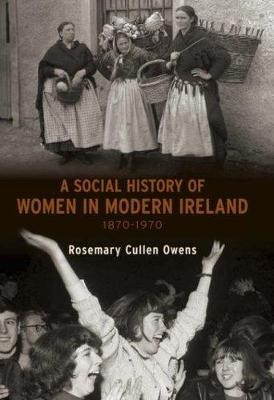Rosemary Cullen Owens stresses at all times the importance of class and land ownership as key determinants for women's lives. A decrease in home industries allied to increasing mechanisation on the farm, resulted in a contraction of labour opportunities for rural women. With the establishment of an independent farming class, the distinguishing criteria for status in rural Ireland became ownership of land, in which single-minded patriarchal figures dominated. In this context, the position of women declined, and a society evolved with a high pattern of late-age marriages, large numbers of unwed sons and daughters, and an accepted pattern of emigration.
In the cities and towns, the condition of lower-working-class women was particularly distressing for most of the period, with particular problems regarding housing, health and sanitation. Through the working of campaigning activists, equal educational and political rights were eventually attained. From the early 1900s there was some expansion in female employment in shops, offices and industry, but domestic service remained a high source of employment. For middle-class women, employment opportunities were limited and usually disappeared on marriage. The civil service, a major employer in an economy that was generally un-dynamic and stagnant, operated a bar on married women for much of the period.
Rosemary Cullen Owens not merely traces these injustices but also the campaigns fought to right them. She locates these struggles in the wider social context in which they took place. This important and overdue book provides an important missing piece in the jigsaw of modern Irish history.
- ISBN13 9780717136810
- Publish Date 25 October 2005
- Publish Status Out of Print
- Out of Print 23 January 2017
- Publish Country IE
- Publisher Gill
- Imprint Gill Books
- Format Hardcover
- Pages 423
- Language English
